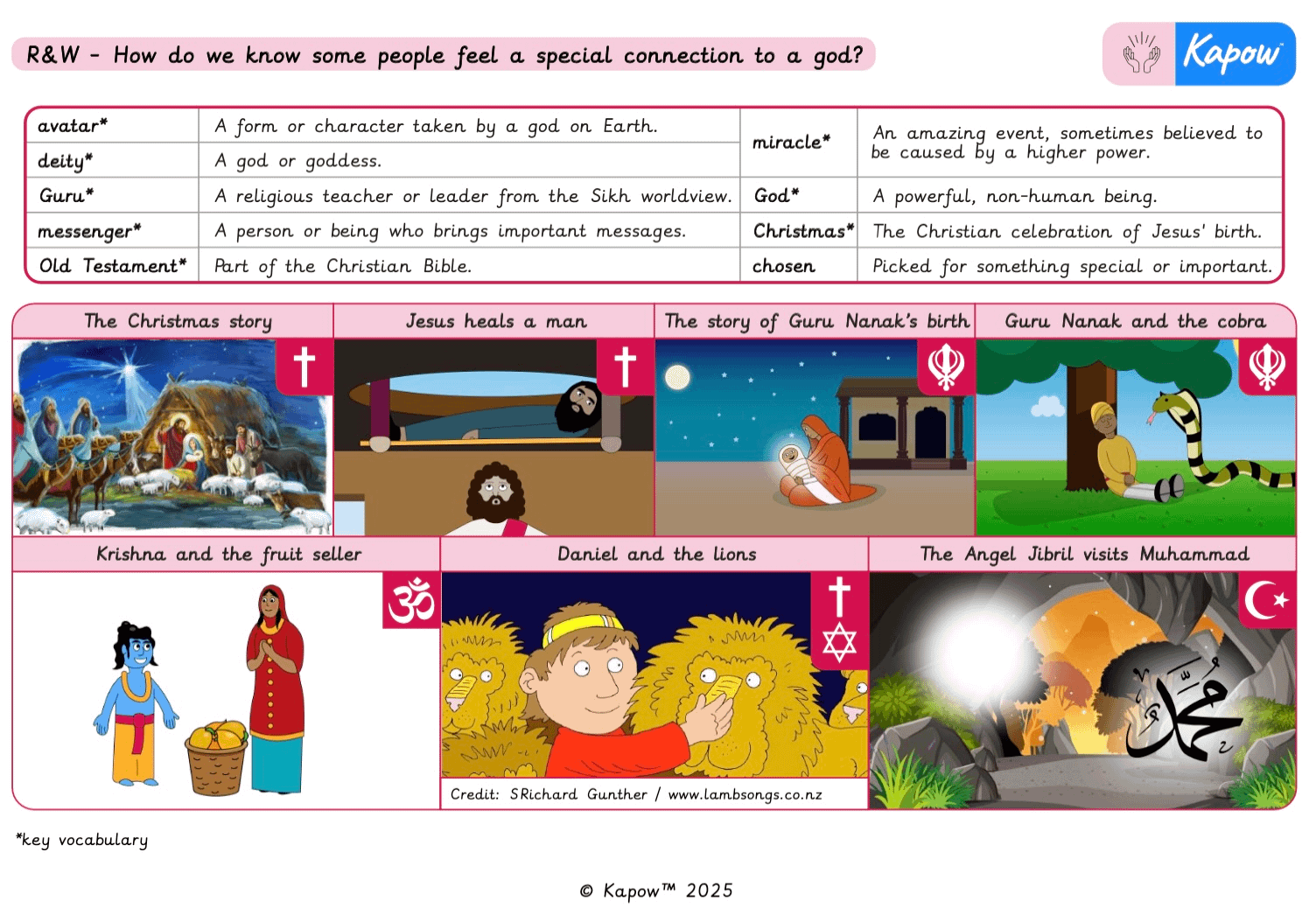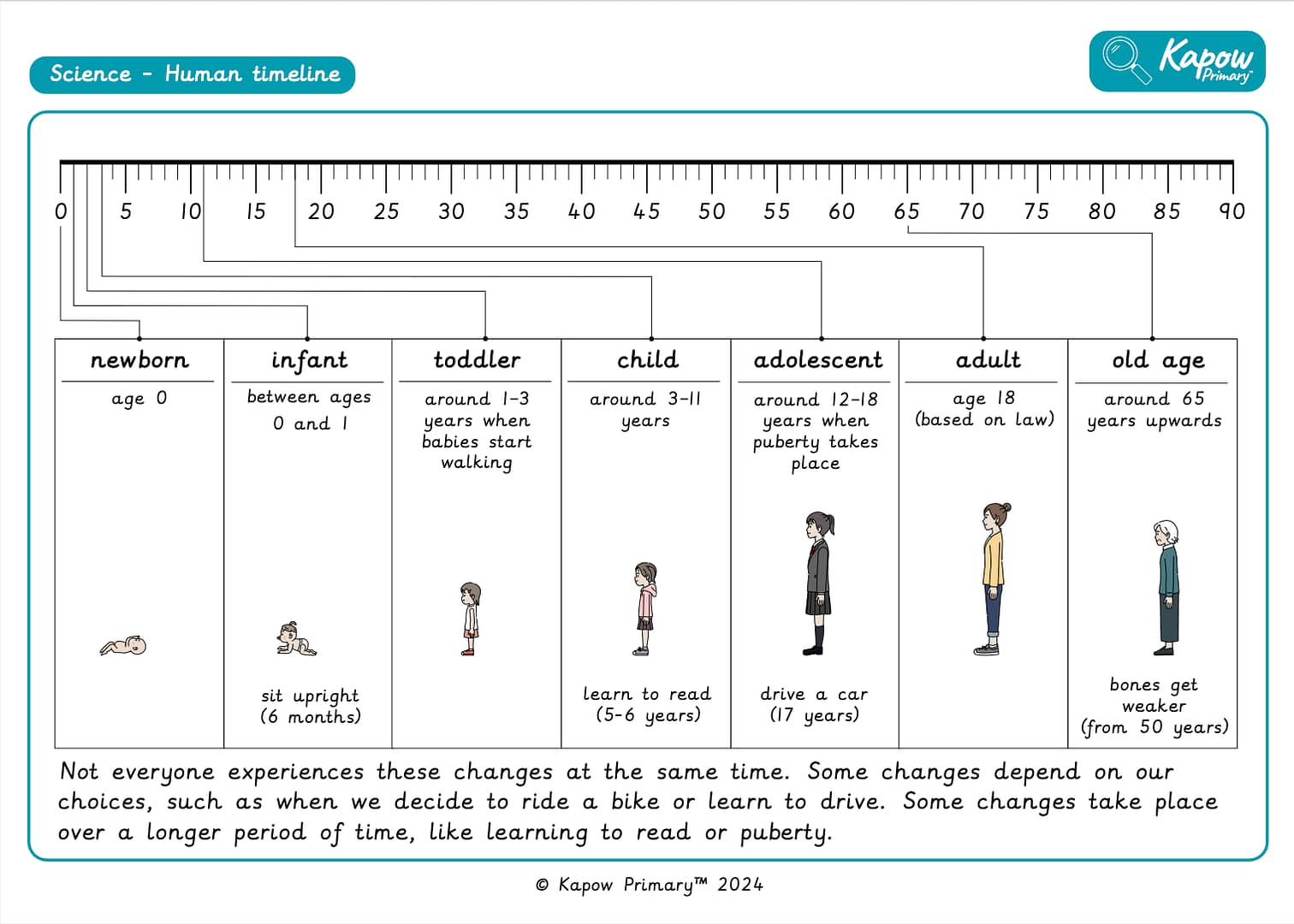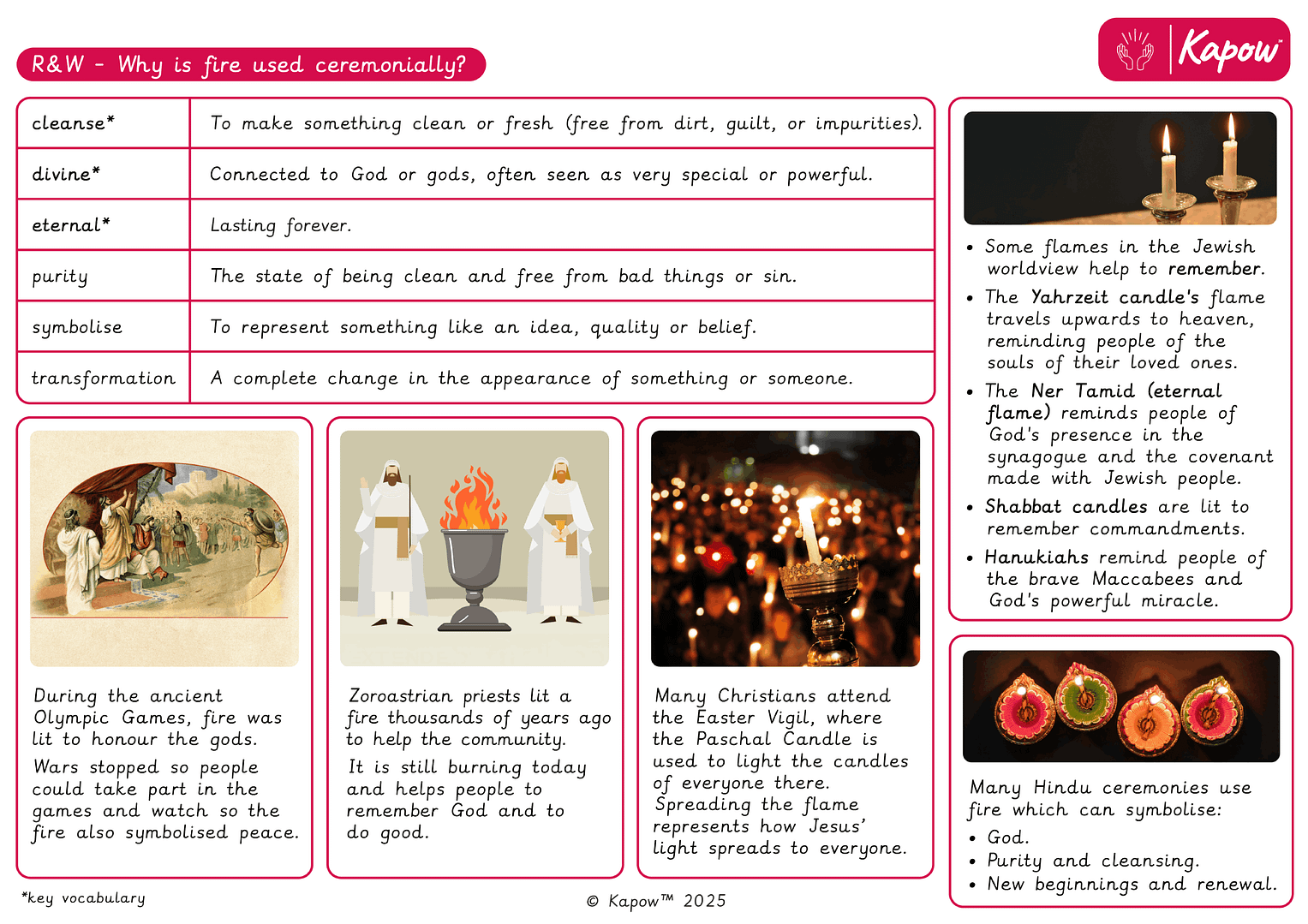
A Knowledge organiser that captures the essential knowledge and skills learnt throughout the Religion and worldviews, Y3/4 (A), Why is fire used ceremonially? unit.
This Religion and worldviews resource is designed to support children as they explore the symbolic significance of fire in various religious and cultural practices. It highlights key vocabulary, rituals and beliefs, such as Hindu fire ceremonies, the significance of the Zoroastrian eternal flame, Jewish candles for remembrance and the Christian Easter vigil. It is perfect for consolidating essential knowledge and fostering cross-cultural understanding.

A Knowledge organiser that captures the essential knowledge and skills learnt throughout the unit Computing, Year 4, *New* Computational Thinking.
This resource is designed to support the children as they develop their understanding of computational thinking. It highlights key vocabulary and concepts, including abstraction, algorithm design, decomposition, pattern recognition and sequencing. The resource shows how these skills are used in coding and everyday situations, such as planning a journey or solving a puzzle. With clear explanations and real-life examples, it is perfect for consolidating essential knowledge and building problem-solving skills in programming and beyond.
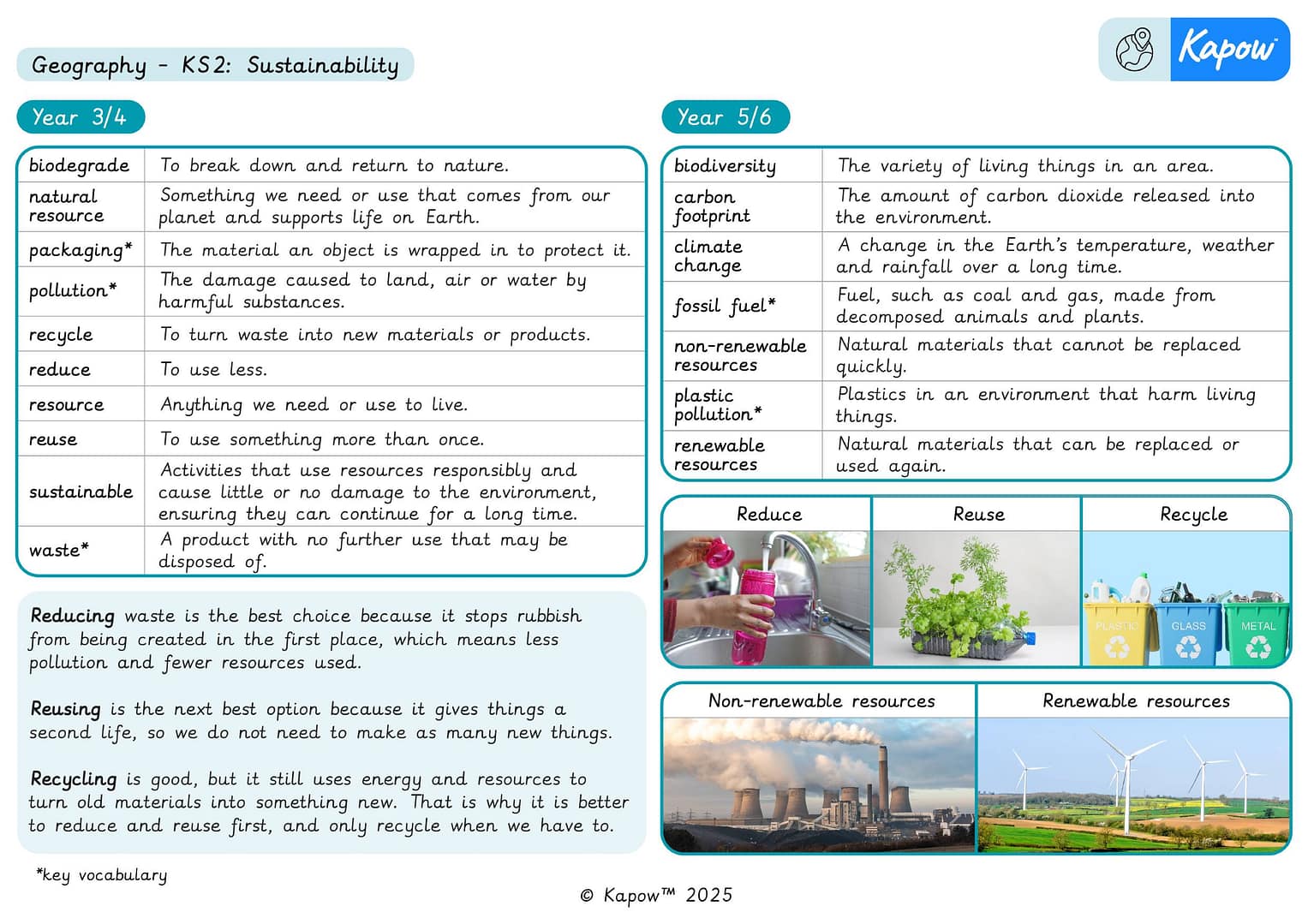
A Knowledge organiser that captures the essential knowledge and skills learnt throughout the Sustainability collection.
This resource is designed to support children as they explore the importance of sustainability in their everyday lives. It introduces key vocabulary, concepts and actions related to protecting the environment and understanding the waste reduction hierarchy of reduce, reuse, recycle. With engaging visuals and clear explanations, this Knowledge organiser helps learners consolidate essential knowledge about sustainability while encouraging responsible habits. Perfect for reinforcing learning in geography and supporting environmental awareness from an early age.
Geography, Sustainability, Year 3: How can we use plastic more sustainably? – Reduce
Geography, Sustainability, Year 3: How can we use plastic more sustainably? – Reuse
Geography, Sustainability, Year 3: How can we use plastic more sustainably? – Recycle
Geography, Sustainability, Year 4: How sustainable is our school?
Geography, Sustainability, Year 5: What is fast fashion and why is it a problem?
Geography, Sustainability, Year 6: What actions can we take to make the world more sustainable?
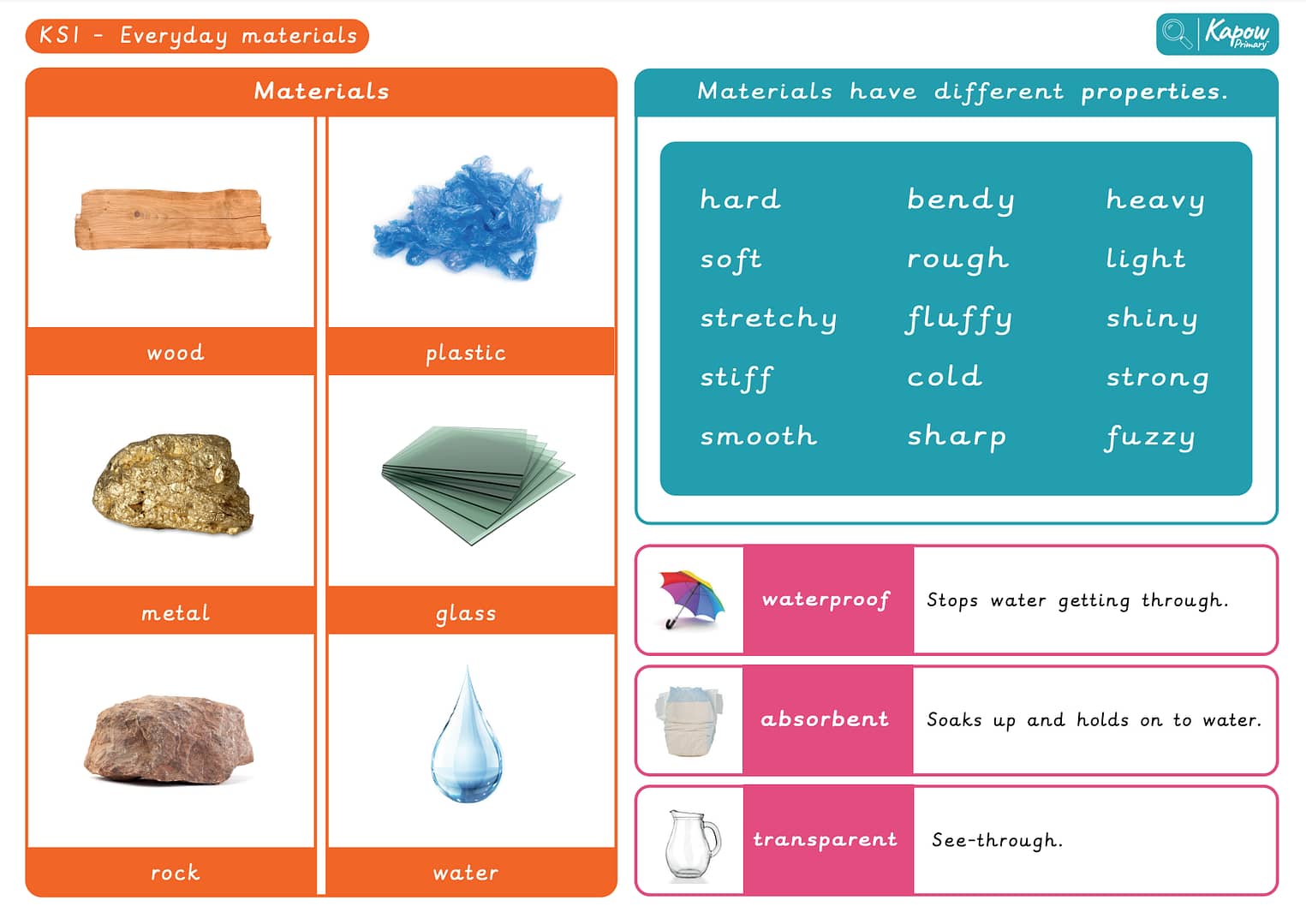
A Knowledge organiser that captures the essential knowledge and skills learnt throughout the mixed-age unit Science, Y1/2 (B), Materials: Everyday materials.
This resource is designed to support the children as they explore everyday materials. It highlights key vocabulary and concepts, including a range of materials such as wood, plastic, metal and glass and their different properties like waterproof, absorbent, transparent, hard and soft. The resource helps the children recognise and describe materials based on their characteristics. It is perfect for consolidating essential knowledge and fostering an understanding of how materials are used in the world around us.
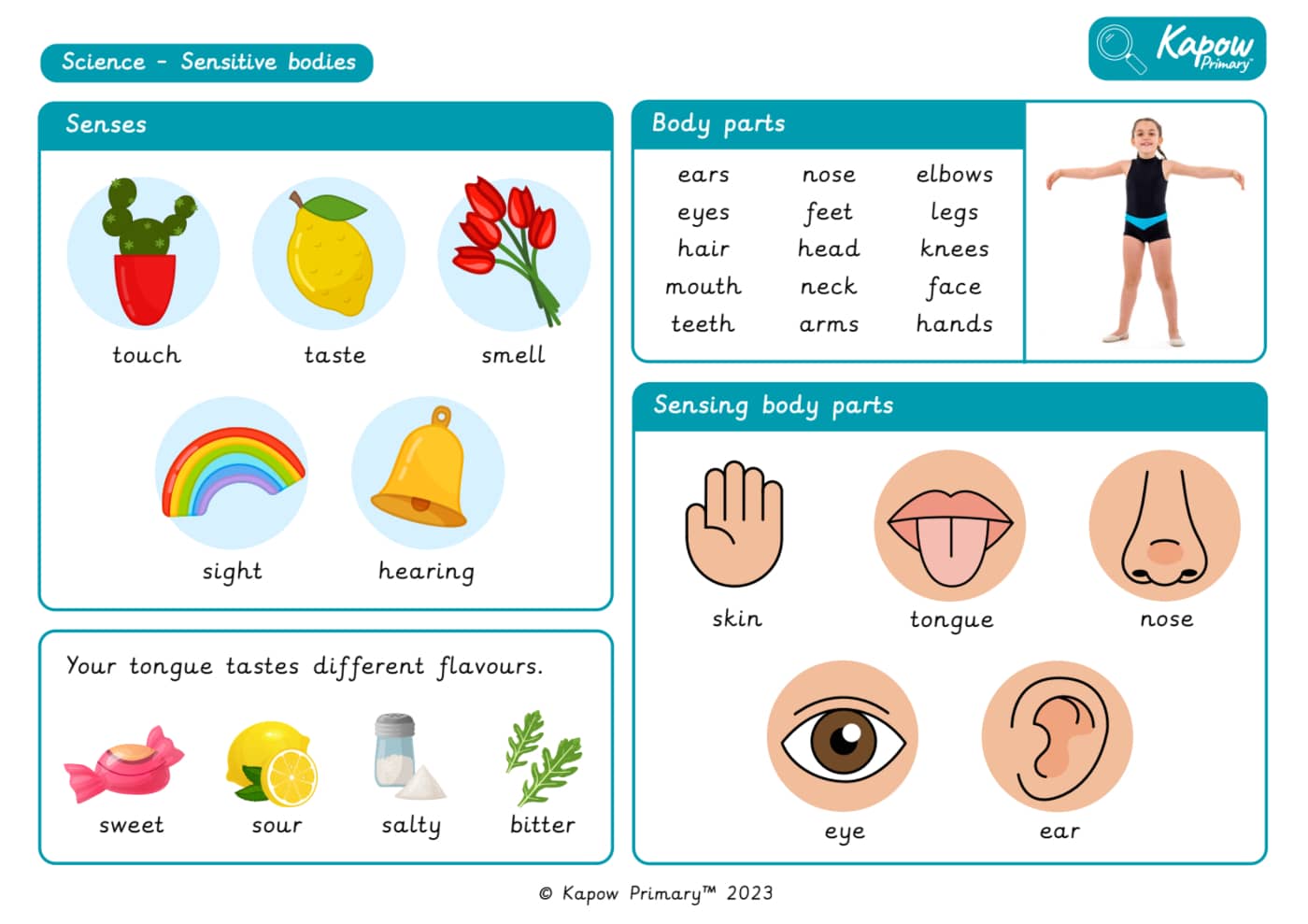
A Knowledge organiser that captures the essential knowledge and skills learnt throughout the mixed-age unit Science, Y1/2 (B), Animals, including humans: Sensitive Bodies.
This resource is designed to support the children as they explore the human body and the five senses. It highlights key vocabulary and concepts, including body parts linked to each sense: sight, hearing, touch, taste and smell. The resource helps the children identify how we use different body parts to sense the world around us, such as tasting with the tongue or smelling with the nose. It is perfect for consolidating essential knowledge and fostering an early understanding of how our bodies help us experience our environment.
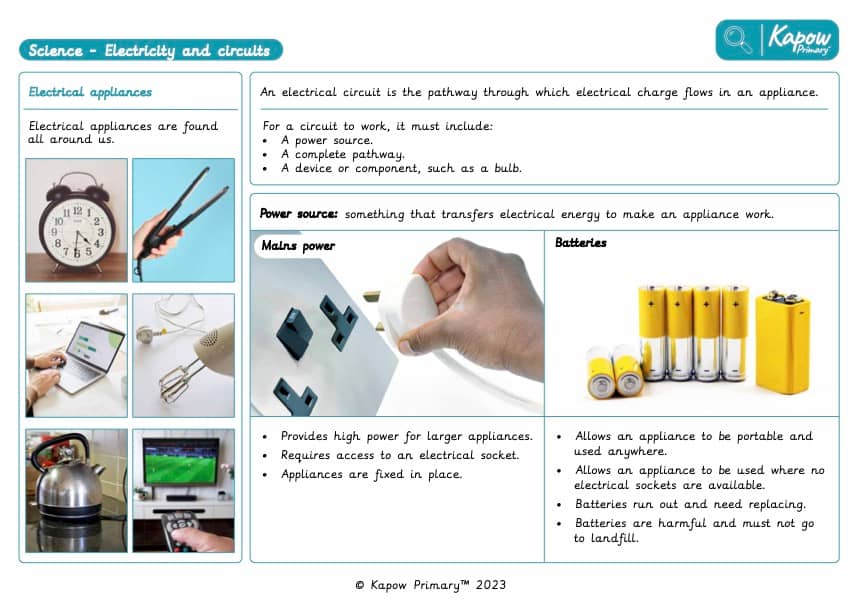
A Knowledge organiser that captures the essential knowledge and skills learnt throughout the mixed-age unit Science, Y3/4 (A), Energy: Electricity and circuits.
This resource is designed to support children as they explore electricity and circuits. It highlights key vocabulary and concepts, including different electrical appliances and their power sources, working safely with electricity and an introduction to electrical components. The resource also explores different materials and their electrical conductivity. It is perfect for consolidating essential knowledge and fostering an understanding of simple electrical circuits.







